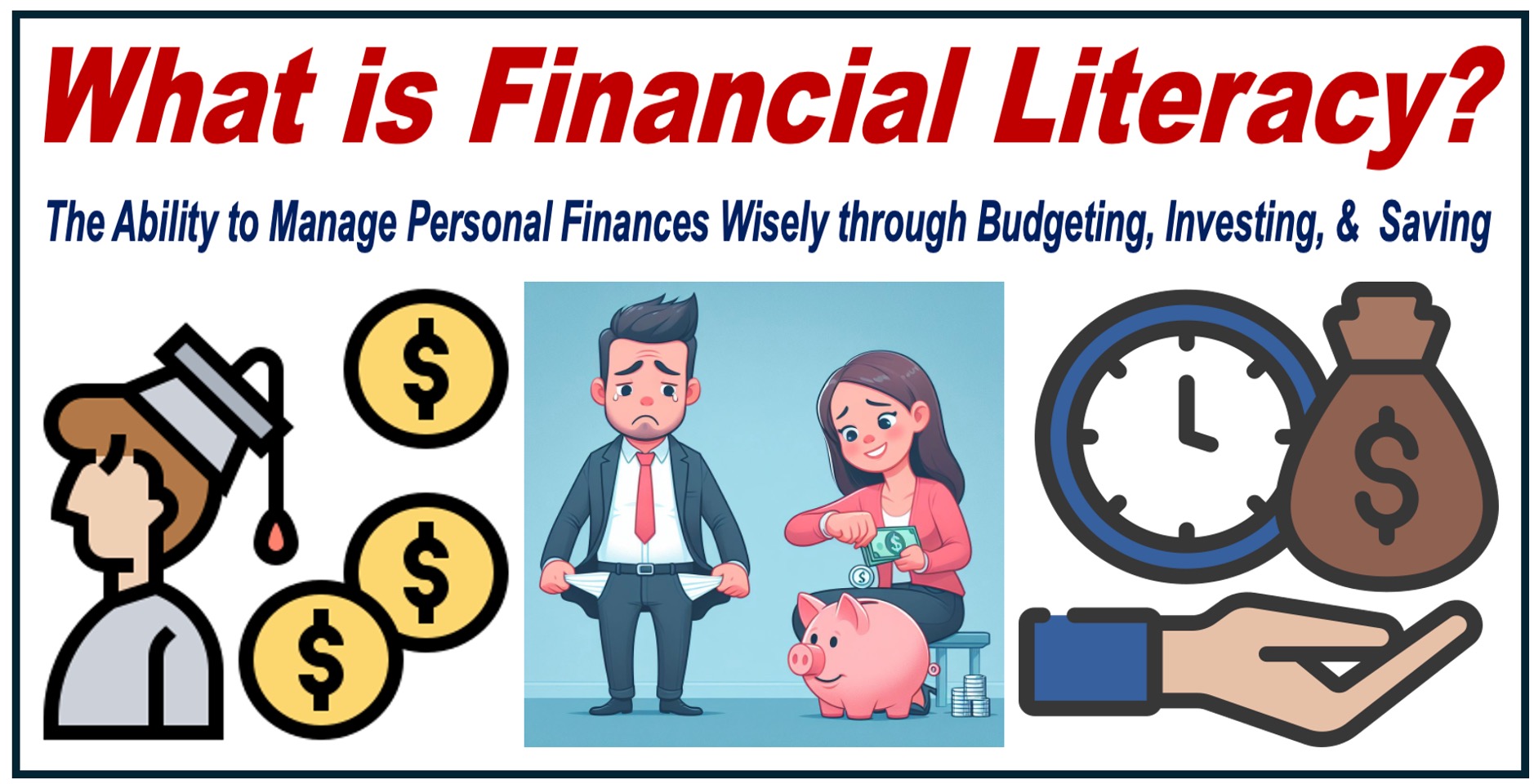If you have the ability to understand and use various financial skills effectively, including budgeting, personal finance management, and investing, you have a good level of Financial Literacy.
This skill set is vital for making informed and effective decisions about personal finance.
Essentially, financial literacy is about understanding how money works in your life.
Wikipedia.com has the following definition of the term:
“Financial literacy is the possession of skills, knowledge, and behaviors that allow an individual to make informed decisions regarding money. Financial literacy, financial education, and financial knowledge are used interchangeably.”
Some people argue it’s a pity schools don’t teach financial literacy, emphasizing its real-world applicability over subjects like ancient history, which may have less direct use in everyday life. They highlight the importance of understanding budgeting, saving, and investing for practical, lifelong financial health.

Some core components of financial literacy
-
Budgeting
Budgeting involves tracking income and expenses and setting spending goals. If you can stick to those goals, you are more likely to enjoy financial stability.
Budgeting helps people plan for both short- and long-term financial objectives, from saving money to buy a car or go on vacation to planning for retirement.
-
Managing debt
Understanding and managing debt includes knowing what types of debts there are, interest rates (the cost of borrowing), and the implications of not managing debt effectively.
People with a good level of financial literacy avoid excessive debt. They also know how to use it wisely when necessary, such as for buying a home or education.
-
Investing
Investing is basically about making money work for you. It is a vital part of financial literacy. It entails making money through various investment vehicles such as mutual funds, bonds, stocks, and real estate, to name a few.
Understanding the fundamentals of investing is crucial for achieving financial security and building wealth.
-
Taxes
If you know how taxes work, you are better able to plan your finances in a way that minimizes how much tax you must pay.
-
Insurance
Financial literate individuals do not only know what insurance is and why it is important, but they are also good at choosing the right type of insurance to protect themselves or their assets against unforeseen events.
Financial literacy – an example
Let’s take a look at this fictitious example, which is relevant to real-life situations.
John earns more than Mary, yet faces greater financial difficulties due to his lack of financial literacy. Mary, on the other hand, leverages her financial knowledge to avoid common pitfalls.
She budgets wisely, distinguishes between wants and needs, and avoids unnecessary debt, thereby stretching her income further. Mary also invests a portion of her earnings, understanding the value of compounding over time.
Her financial literacy empowers her to make informed decisions, ensuring her financial stability despite earning less.
Financial literacy – informed choices
Financial literacy empowers us to make informed choices, manage money effectively, and avoid financial pitfalls.
With the right type of financial knowledge, we can save, invest, and plan our finances to achieve personal and financial goals, which help us lead a more secure and prosperous life.
A necessity today
As people are now faced with more complex and impactful financial decisions than ever, financial literacy is not just beneficial – it is necessary.
It provides the foundation for independence and financial well-being, enabling us to navigate the financial challenges of modern life with confidence.
